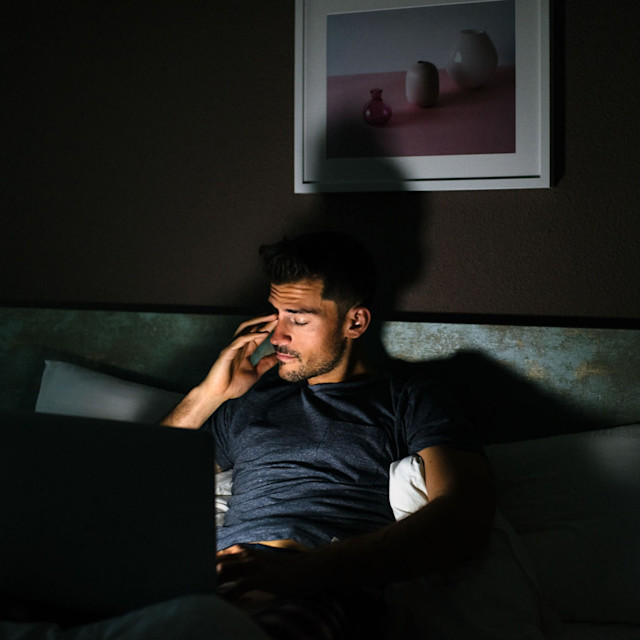With the right setup, you can reduce the effects on sleep.
The healthiest choice isn’t always an option. In Best Worst Choice, experts explain what you can do to make the most of those less-than-ideal situations.
The gist:
Experts say you should stop looking at screens an hour before bed because they emit blue light, which tells your body to wake up—not wind down. If you choose to stream, the right setup can minimize the impact.
Expert insight:
When deciding what to watch, opt for something you’ve seen before (reruns, for example) so your brain doesn’t have to process as much new information, says Larry Rosen, Ph.D., professor emeritus of psychology at California State University, Dominguez Hills. To avoid getting too caught up in the plot, watch something light like a sitcom rather than an intense drama.
It’s best if the screen is on the opposite side of the room as you, he adds. The farther it is, the more the blue light will disperse and fan out, minimizing the amount that hits your retinas.
The bottom line:
When it comes to nighttime TV, think familiar and far away. If you’re using your laptop, make sure it’s at least 14 inches from your face, set it to night mode, and lower the brightness the later it gets, Rosen suggests.
